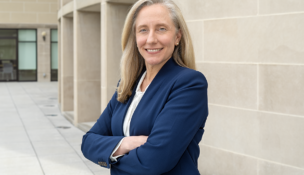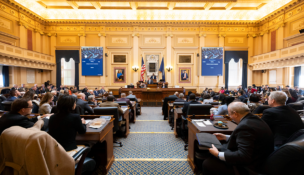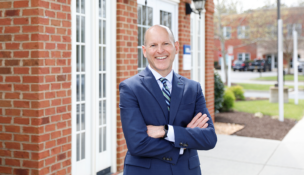Single-minded
Hampden-Sydney, Hollins, Mary Baldwin and Sweet Briar bypass the coed trend
Gary Robertson //October 30, 2013//
Single-minded
Hampden-Sydney, Hollins, Mary Baldwin and Sweet Briar bypass the coed trend
Gary Robertson //October 30, 2013//
Abagail Ramey, a 21-year-old senior from Virginia Beach majoring in communications, would not trade her experience at Mary Baldwin College in Staunton for any other school.
“It’s an amazing place,” she says. “It’s small; I’m not overwhelmed; and you don’t have the distraction of males being in class. And my professors, I feel like they look after me. They know you personally.”
More women than men are attending college today. The U.S. Bureau of Labor Statistics notes that, among 2012 high school graduates, 71.3 percent of the women enrolled in college compared with 61.3 percent of the men.
Those percentages would seem to favor women’s colleges, such as Mary Baldwin, Hollins University and Sweet Briar College in Virginia. Nonetheless, less than 5 percent of female students applying to college consider women’s colleges, according to the Georgia-based Women’s College Coaltion.
Another potential recruitment hurdle is a national decline in the number of high school graduates (accompanied by a dramatic demographic shift in their profile). That cloud, however, has a silver lining, the number of graduates in the South will continue to climb.
In the 1960s, the nation had more than 300 women’s colleges. Today, there are fewer than 50.
Meanwhile, the number of men’s colleges nationally has shrunk to only four, including Hampden-Sydney College near Farmville.
Hampden-Sydney currently enrolls 1,070 men, one of highest levels in its 238-year history. “We’re about as big as we’ve ever been,” says college President Christopher B. Howard.
Single-sex schools in Virginia were once the norm, even among state colleges and universities. Before the 1970s, James Madison University and Longwood University were women’s colleges. The University of Mary Washington was the women’s college of the University of Virginia, while Radford University was the women’s division of Virginia Tech.
In the past 30 years, two Virginia men’s schools, Washington and Lee University and Virginia Military Institute, have admitted women. Randolph-Macon Woman’s College in Lynchburg changed its name to Randolph College when it admitted men in 2007.
Nonetheless, Virginia’s remaining single-sex schools have no plans to follow the coed trend, asserting they offer something unique to their students.
“It’s the advantage of being in an institution that’s for women, and centered on women every day,” says Mary Baldwin President Pamela Fox. “Everyone’s attention is focused on developing the outstanding qualities of women.”
Related stories:
<

















